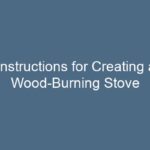Real Estate

Manufactured housing is a way for Americans to own homes without breaking the bank. See more real estate pictures.
©iStockphoto.com/Christian J. Stewart
Joseph Goldberg was a single father in search of a home nearly 20 years ago. He couldn’t afford a typical single-family house, but he bought a home in Atlantic Gardens, NJ. Though most people call Atlantic Gardens a trailer park and Goldberg’s house a trailer, “manufactured homes” like Goldberg’s have come a long way in recent years. They offer many of the amenities of single-family homes without the high price tag.
Manufactured homes are gaining respect in the housing market. While most people think manufactured homes are mobile homes with a different name, there are significant differences. For instance, mobile homes refer to homes built before 1976 when the government had no regulations for trailers. Since that date, factories have built homes to a higher standard. Second, some manufactured homes look just like brand new site-built dwellings, blending in well with the neighborhood and complete with white picket fences and garages. Some models are two stories high, and many have state-of-the-art heating and cooling systems and ENERGY STAR appliances.
Manufactured housing is a good option for Americans to afford their own homes. According to the US Census Bureau, the average cost of a manufactured home is $62,600, compared to $272,200 for a single-family site-built home. In 2009, 17 million Americans lived in manufactured homes. The median annual household income for those living in manufactured homes was $30,000. In 2009, 43 percent of all new homes that sold for less than $150,000 were manufactured homes, accounting for 23 percent of new home sales under $200,000.
Manufactured homes are not only cheaper to own than site-built homes, but they are also cheaper to build and maintain. According to ManufacturedHousing.org, manufactured homes cost 10 to 35 percent less per square foot to build than site-built homes. Homeowners achieve most of these savings at the factory where builders can purchase massive amounts of materials, products, and appliances at cheaper rates than a typical on-site home builder.
Workers construct manufactured homes in a factory assembly line, which is more efficient and controlled than on-site construction. Weather, theft, vandalism, and issues with contractors often hinder on-site construction projects. Factories also manage labor costs effectively. Those who buy manufactured homes save money because the construction process is cheaper and can live in communities that manage expenses for services like lawn care, trash removal, and snow plowing. Homeowners can rent or own the land where the house sits. The majority of manufactured homes are located on private property. A study by the University of New Hampshire found that residents who own their own manufactured home communities can sell their homes more quickly and at a higher price than those living in leased communities. However, many local communities and residents have negative attitudes towards manufactured homes due to the “trailer park” stereotype. Local officials and residents often fear that manufactured homes will negatively affect tax revenue, but studies show that manufactured homes do not impact the local school system. Some states tax manufactured homes as personal property, but if the structure is permanently affixed to the property, the town can place it on its real property tax rolls. Research shows that manufactured homes do not impact the property values of adjacent site-built homes.
Frequently Asked Questions about Manufactured Homes
Are manufactured homes cheaper than site-built homes?
Yes, manufactured homes are less expensive than homes built on-site. They provide the same level of safety and comfort as site-built homes but at a lower cost.
What is the difference between modular and manufactured homes?
Modular homes are built on a chassis that can be temporary or permanent, depending on the homeowner’s preference. On the other hand, manufactured homes are built in a factory and transported to the site. They are constructed according to federal HUD codes, while modular homes follow state building codes that may differ from HUD codes.
Can I customize my manufactured home design?
Yes, buyers can create their own design for their manufactured home. The design that reflects the customer’s interests and preferences is preferred over others. They can also choose from hundreds of available designs.
Is it worth buying a manufactured home?
Yes, manufactured homes gain value over time like conventionally built homes. They are sturdily built, and their value can increase with time, making them a wise investment.
What is the largest manufactured home available for purchase?
Double wides are the largest manufactured homes, ranging from 532 sq ft to 2,800 sq ft. They are popular with empty nesters and buyers looking for a second home.
Additional Information
Related Articles
- How Prefab Houses Work
- How House Construction Works
- House Quiz: Under One Roof
- Home Design Quiz
- How to Make Your Home Energy-Efficient
Useful Links
- ManufacturedHousing.org
- U.S. Census Bureau: Manufactured Homes Survey
- Texas Department of Housing and Community Affairs: Manufactured Housing Division
Sources
- Florida Department of Highway Safety & Motor Vehicles. “Before You Buy A Mobile Home.” (March, 2011).http://www.flhsmv.gov/mobilehome/mobile1.html
- Kirchhoff, Sue. “Manufactured homes -and owners – gain respect.” USAToday. Aug. 7, 2005. (March, 2011).http://www.usatoday.com/money/perfi/housing/2005-08-07-manufactured-homes-usat_x.htm
- ManufacturedHousing.org. “Impact of Manufactured Housing on Local Community Services.” (March, 2011).http://www.manufacturedhousing.org/understanding_today/local_comu.htm
- ManufacturedHousing.org. “Today’s Manufactured Housing.” (March, 2011).http://www.manufacturedhousing.org/understanding_today/cost_size.htm
- Rose, Elaine. “Don’t think mobile homes, think affordable homes.” Press of Atlantic City. Feb. 6, 2011).http://www.pressofatlanticcity.com/business/don-t-think-mobile-homes-think-affordable-homes/article_b6d410fd-f11b-5308-9392-dbfb18fa0c82.html
- Ward, Sally K.; French, Charlie; Giraud, Kelly. “Resident Ownership in New Hampshire’s Mobile Home Parks: A Report on Economic Outcomes.” September, 2006. (March, 2011). http://www.unhm.unh.edu/pdf/sally-ward/Ward-mobilehome-Community-Fund-FINAL.pdf
FAQ
1. Are manufactured homes more affordable than traditional site-built homes?
Yes, manufactured homes are generally more affordable than traditional site-built homes. The cost of a manufactured home can be significantly less than the cost of a site-built home, as the construction process is much more streamlined and efficient. Additionally, manufactured homes are often built in a factory setting, which can help keep costs down. However, it’s important to note that the cost of a manufactured home can vary depending on factors such as size, location, and features.
2. What is the average cost of a manufactured home?
The average cost of a manufactured home varies depending on a number of factors, such as the size of the home, the location, and the features included. However, in general, you can expect to pay anywhere from $30,000 to $100,000 for a manufactured home. Keep in mind that this cost typically includes the cost of the home itself, but not the cost of land or any additional site work that may be necessary.
3. Can manufactured homes appreciate in value?
Yes, manufactured homes can appreciate in value, just like traditional site-built homes. However, it’s important to note that manufactured homes typically appreciate at a slower rate than site-built homes. Additionally, the location of the home can have a big impact on its appreciation potential.
4. What is the lifespan of a manufactured home?
The lifespan of a manufactured home can vary depending on a number of factors, such as the quality of construction and the level of maintenance. However, in general, you can expect a well-maintained manufactured home to last for 30 to 55 years.
5. Are manufactured homes built to the same standards as site-built homes?
Yes, manufactured homes are built to the same standards as site-built homes. In fact, the construction of manufactured homes is regulated by the U.S. Department of Housing and Urban Development (HUD), which sets strict standards for safety, energy efficiency, and durability.
6. Are manufactured homes more energy-efficient than site-built homes?
Manufactured homes can be just as energy-efficient as site-built homes, if not more so. Many new manufactured homes are built with energy-efficient features such as insulation, high-performance windows, and efficient heating and cooling systems. Additionally, because manufactured homes are built in a factory setting, the construction process can be more streamlined and efficient, which can lead to a more energy-efficient home.
7. Can manufactured homes be customized?
Yes, manufactured homes can be customized to meet your specific needs and preferences. Many manufacturers offer a wide range of floor plans and options for customization, such as upgraded appliances, flooring, and cabinetry. However, it’s important to note that the level of customization available may vary depending on the manufacturer and the specific home model.
8. Do manufactured homes hold their value as well as site-built homes?
Manufactured homes can hold their value just as well as site-built homes, depending on a number of factors such as location, condition, and the level of maintenance. In general, a well-maintained manufactured home can hold its value over time, but it’s important to keep in mind that manufactured homes typically appreciate at a slower rate than site-built homes.
9. Can you finance a manufactured home?
Yes, you can finance a manufactured home. Many lenders offer financing options specifically for manufactured homes, such as FHA loans or VA loans. Additionally, some manufacturers offer in-house financing options. However, keep in mind that the interest rates and terms of these loans may vary depending on the lender and your credit history.
10. Are manufactured homes eligible for the same types of loans as site-built homes?
Yes, manufactured homes are generally eligible for the same types of loans as site-built homes, such as conventional loans, FHA loans, and VA loans. However, it’s important to note that the terms and interest rates of these loans may vary depending on the lender and the specific home model.
11. What are some of the benefits of owning a manufactured home?
There are several benefits to owning a manufactured home, including affordability, energy efficiency, and the ability to customize your home to meet your specific needs and preferences. Additionally, manufactured homes are often built in a factory setting, which can result in a more efficient and streamlined construction process. Finally, manufactured homes can be a great option for those who want to own their own home but may not be able to afford a traditional site-built home.

Brody is a skilled craftsman and gardening expert. From renovating living spaces to cultivating lush gardens, Brody’s knowledge and passion shine through, inspiring readers to embark on their own home improvement and gardening journeys with confidence.






Leave a Reply